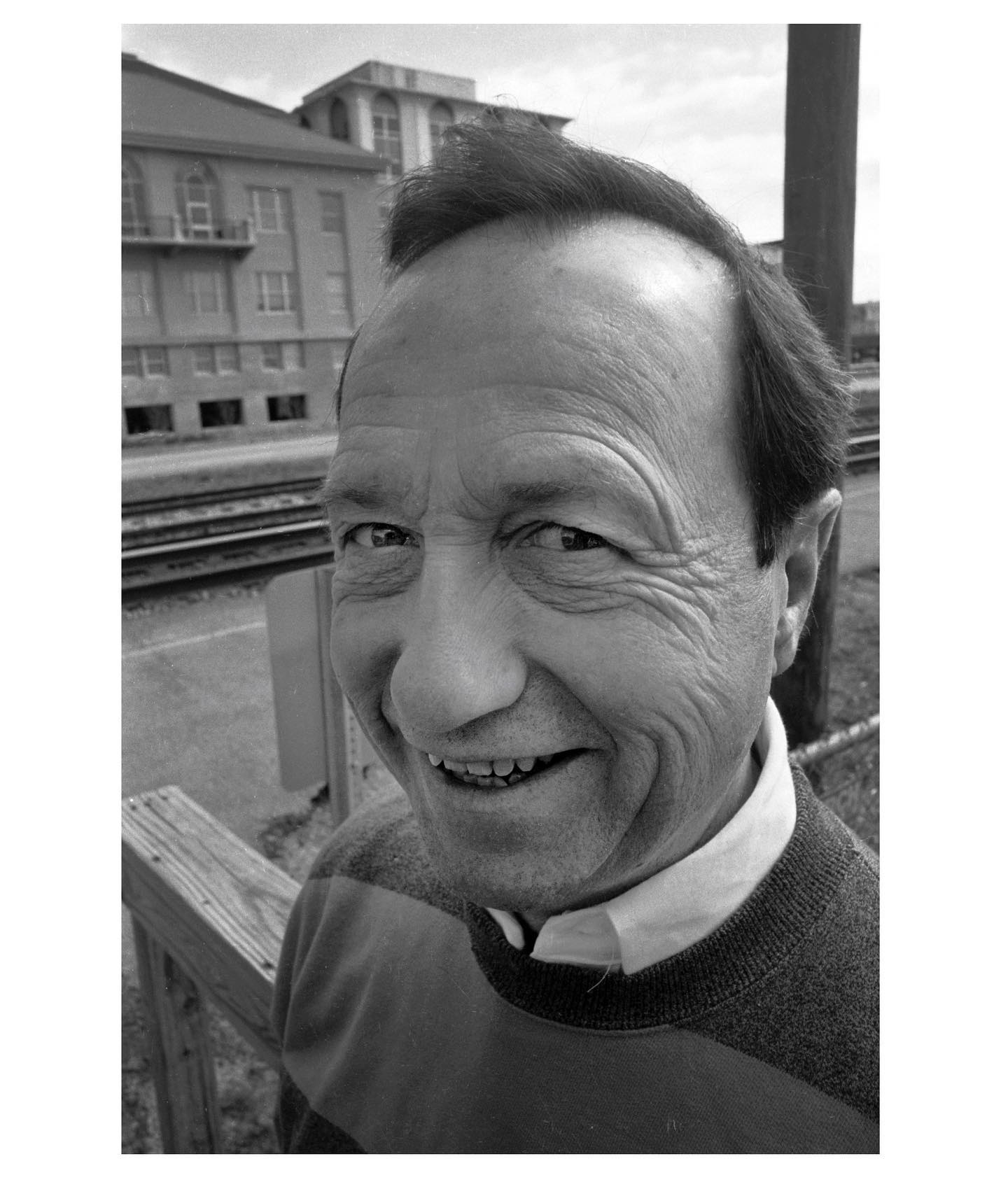
25 Jan 15 years gone
Yesterday I was scanning some photos that I shot on the shoot for our first film “Half-Cocked”. One of the rolls had a couple of strips of images of my father. My memory isn’t great but I think that shortly after the shoot we headed down to North Carolina, maybe to play a show with my band, but also to visit my parents. My father was involved in the script writing process, and they probably helped us out with a little bit of money to get by as we shot the film. I’ve surmised from the other shots on the roll that my bandmates drove our van back to New York and that my girlfriend Suki and I stayed for a few more days because the last shots are of my father waiting for the train with Suki and I.
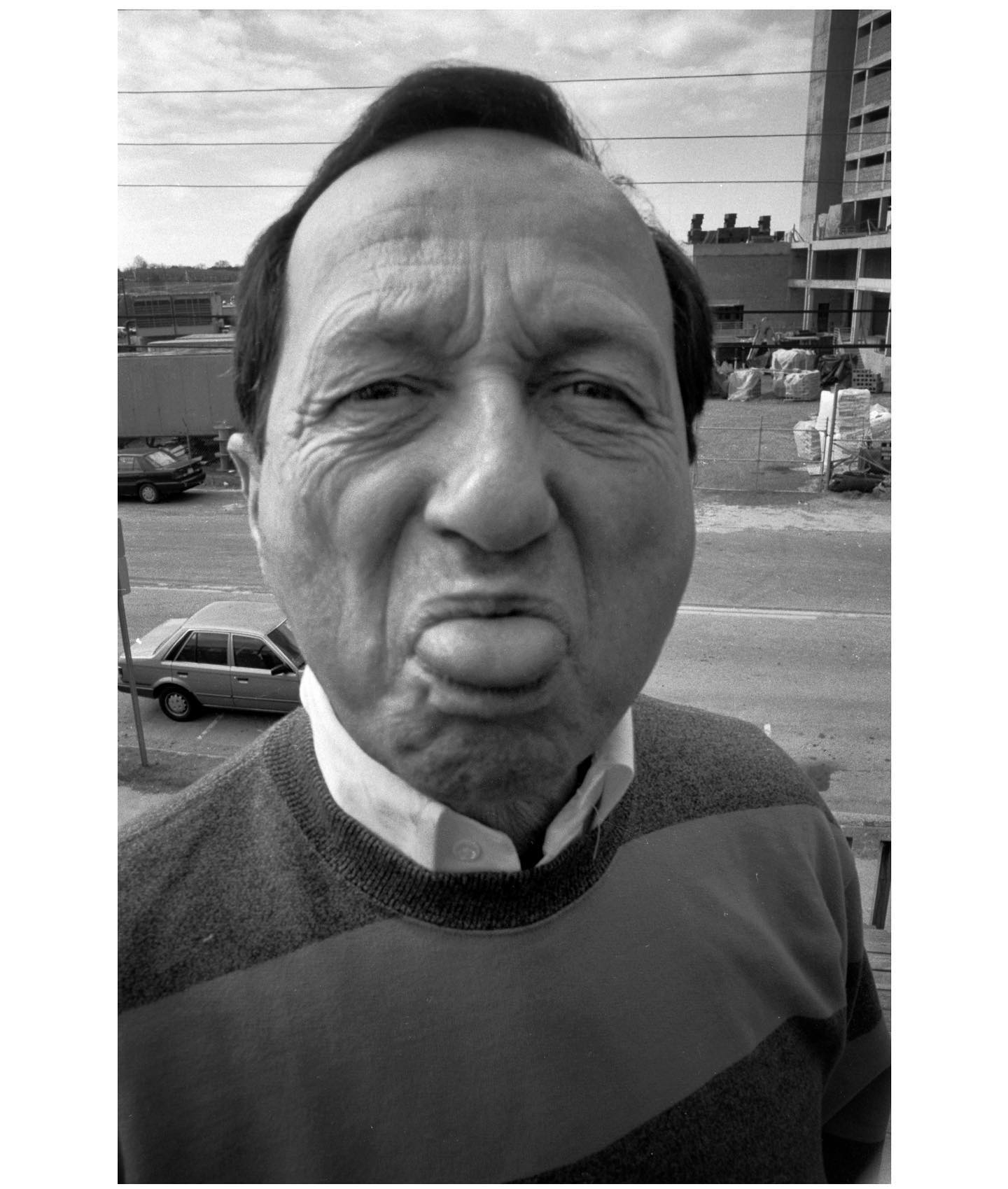
He’s around 60 years old in these images which were taken in Late winter 1994. I’m going to be 52 next week, and today, Jan 25th, is the 15thanniversary of his death in 2006, when he was 72. He had been retired for a couple of years, and his health was not great. He was hit by a car while trying to cross a highway on his way to a basketball game. I was in NY at the time, crossing the Manhattan Bridge. I had just had a very strange film shoot and I was calling to tell him about it. I left a message on the answering machine. It was still there, un-listened to when I got to North Carolina the next day.
It was a little odd scanning these photos a couple of days before the anniversary. I was conscious of trying to be connected to the fact of his passing, if not the grief. My father was a little bit vain. I’m getting some lines around my eyes now and wonder if mine will be as rugged as his in 8 years. He loved the sun and laughed a little more than me. When I was 25, when these pictures were taken, I couldn’t imagine being 50 let alone 60. A couple of years later he had a little eye lift because he was having some trouble with seeing, and he didn’t like looking old. I’m OK with it. I miss my father more than I admit to myself. My mother’s gone a year and some change. She never got over his loss, not even a little bit.
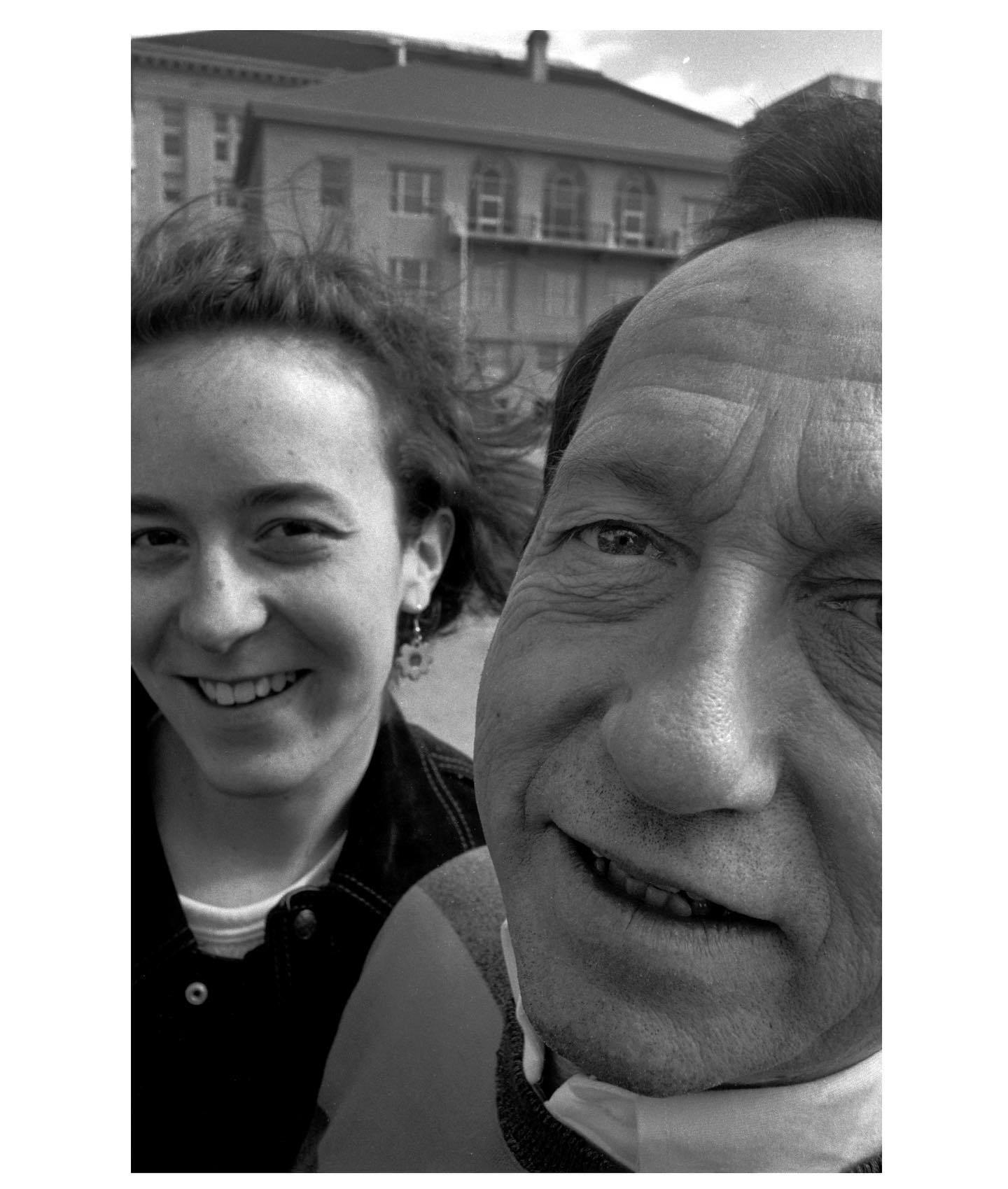
My father, and his story of healing his back and neck pain after discovering Dr Sarno’s book “Healing Back Pain” is central to the creation of our film “All The Rage”. My father was a psychologist, and like many others who focus on understanding the complex layers of our consciousness, I think that he partly became one as a means of avoiding dealing with his own issues. I didn’t follow him into his line of work, but I’m certainly better at helping others get past some of their own problems than I am at getting through my own. Still, my father’s path, and his example, have helped me push a little farther into that space than he was able. Today, as I think about him, and how his pain caught back up with him later in life, I am conscious of the need to go just a little bit deeper. It is not a simple task, but as Dr Sarno discovered, writing about it as honestly as possible can help open up doors and pathways to healing.
My father was a relentless questioner. When I had friends over, especially later in my childhood when we were in high school, he would ask questions in an overwhelming manner. Some friends loved it and some hated it, but it was always revealing, and I learned more about my friends from his questions than I did from my own. I have teenagers myself now, and I give a bit more space than he did. The late teens can be a difficult time to answer the kind of probing questions he asked, but they are also the kind of questions that can be useful if a person is open to them. Often times they were the only time that they had been asked, and it prompted them to be more thoughtful. I know this because 20 and 30 years later I’ve been told it by not only by my friends, but his former students and colleagues as well.
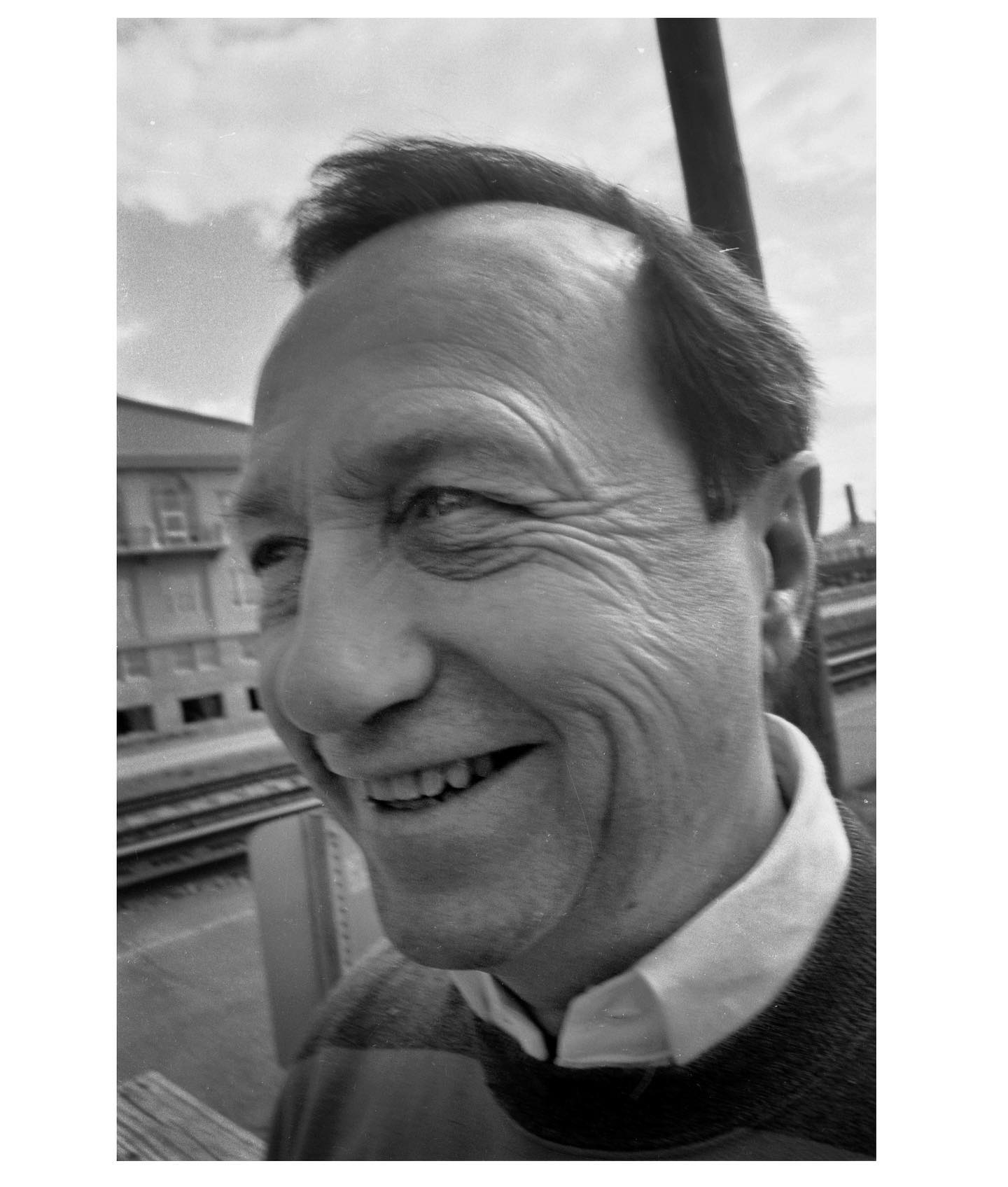
A couple of months after my father died I was at the Children’s Museum in Brooklyn with my daughter and I ran into a friend and her kids. I hadn’t realized it, but she was from Raleigh, a neighboring town from Chapel Hill where I grew up. When she introduced me to her mother, her mom asked if I was related to my dad. She was a former student of his. She related that on one of the first days of class he had casually uttered the word “fuck”, and she’d almost fainted because she had never heard it said so casually before. My father always left an impact. She also said she’d learned more in his class than any other she’d taken, and it had helped her to become a much better therapist because of it. My father tended to shatter expectation, which also tends to reveal those frames of that create judgment; judgement we often reflect with limited awareness. Any sense of propriety or judgement about how people “should” behave will limit one’s ability to hear what people are really saying, which is a problem when one is there to listen. Having said that, he was far from being judgement free, but in times of crisis he could mostly be counted on to be present and calm. However, his reactions to small transgressions like overspending on a meal, revealed some of the issues that were too painful for him to address.
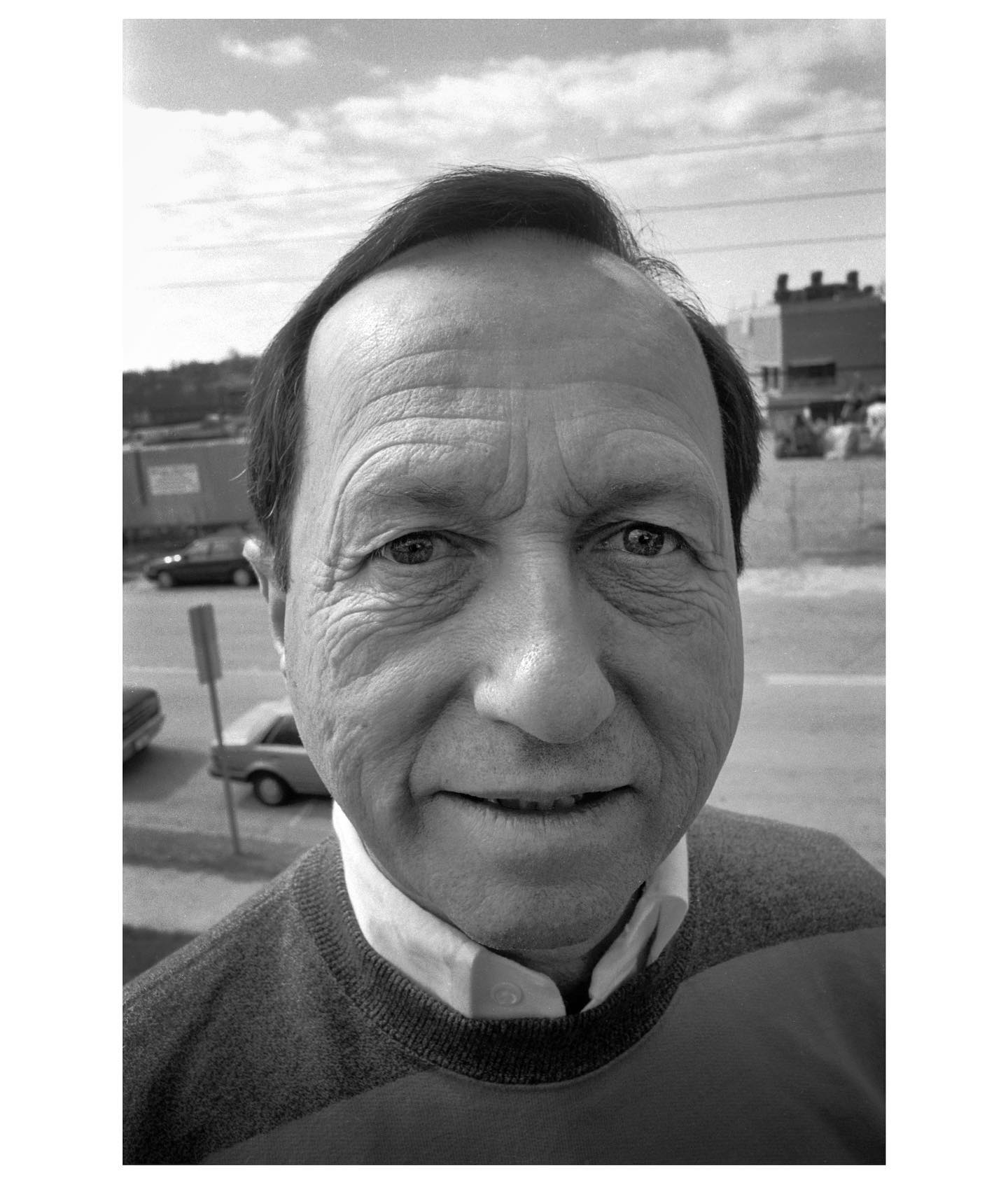
My parents fought a lot when I was a kid, which is another indicator that he had not fully addressed some of the issues he struggled with. Plates never flew, but doors did slam. They were often in a war for control over something or other. They had a very difficult time collaborating, and they had staked out some territories, ceded others, and skirmished over the rest. There is no doubt that they loved each other, but they also caused each other a great deal of pain. Sometimes when we try to avoid the negative patterns of our parents we end up creating others that have their own hidden poisons. When we try too hard not to fight, we repress what we need to express, or find balance with. That which we resist will persist, and this if often where the real work of healing comes in.
While my father almost immediately had a powerful sense of healing from reading Dr Sarno’s book, he still had some back pain, and stomach issues. These were made manageable by gently addressing them but he never leaned in and did the hardest work as far as I could tell; those demons and traumas that held him prisoner on some level were still quite vigilant. He was a profound proselytizer for the ideas, and while a deep-seated fear of poverty was one of his weaknesses, he always had copies of Dr Sarno’s book to give away to anyone it might help. I know he never dealt with that fear of spending money, because the angst it caused him was ever present. Having said that, the joy he experienced when getting a good deal was profound. When my wife and I got married he came to NY to help figure out the rehearsal dinner. We ate at a couple of places but the prices were shocking to him in a way that made him enraged. Finally, he came across an ad for a boat trip around Manhattan. It ended up costing half as much as the restaurants we’d looked into, and the food wasn’t any less “dreck” than the crap we’d found. The best thing was, it really was a wondrous way to spend time with family and friends. It was probably one of his greatest bargains ever.
My father’s tightness with money, which was clearly related to growing up poor during the depression, was not the only issue he faced. As mentioned before, he liked to be in control of things, which caused some issues in his family relationships. However, he was also pretty skilled at being in charge, and he ended up being one of the longest running chairs of his department at the University. I don’t think he had interest in being an administrator on a larger scale, but he approached his role in his own small community of the psych department with great pride and ease. Usually people held the position for a few years but he was the chair for more than a decade I believe. I remember visiting him there when I was in high school and he had such a sense of comfort in his realm. At a certain point, either he realized it was time for someone else to step in, or someone made it clear that it was time, and he retired.
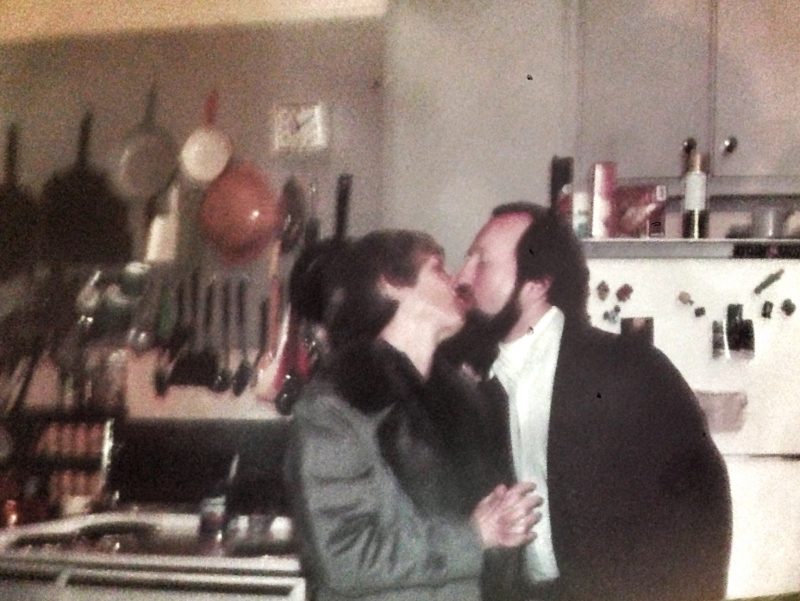
That was not an easy adjustment for him to make. This is something that Dr Sarno talks about in his work; that our life transitions are often very hard on our egos. Going from a position of power, to being outside of that space completely, can be devastating. After leaving work my father began to have a lot of pain and was told that maybe he had rheumatoid arthritis. He also began to have some muscle wasting in his hands, and it bothered him a great deal. A few months before he died my sister called; she was very concerned with the belief that he had ALS. So, when he went to the doctor on the morning of his death, and was told that whatever he was doing to slow the progress of his decline, ie yoga, exercise, and meditation, wasn’t helping, I can only imagine how devastating that was.
That night my mother and he were headed to a UNC basketball game. The arena is close to our house so my mom dropped him off at a stoplight closer to the basketball arena, and drove back into our neighborhood to park. He was hit while crossing the 4 lane highway. I don’t know what happened, but it’s not difficult to imagine that part of him had given up. My mom talked about the previous week a lot; that they had fought less in that week than she could ever remember. It made her feel loved, but it also made me think that he had no fight left in him.
My father was amazing, difficult, loving, and often quite critical. The was nothing simple about him. Thankfully, we had worked through some of the issues that we had, so when his accident happened I didn’t feel a sense of unfinished business. Though, there has remained a sense of loss. I miss him a lot, but also feel that he is very much a part of me, and that I still have some work to do to heal those parts of himself that he gifted me; those parts that he still had not found a way to confront. I’m getting there. I’m not there. There is perhaps no there, there. There is however, a light, and I’m moving towards it.

Thomas Walken
Posted at 11:56h, 03 MarchYour dad supervised me when I was a VA psych intern and later as a masters-level practitioner. I admired him so much and named my son David with him in mind. Thank you for sharing your thoughts on him- really glad to know more about his life. You’re one of the speed walking twins, right?